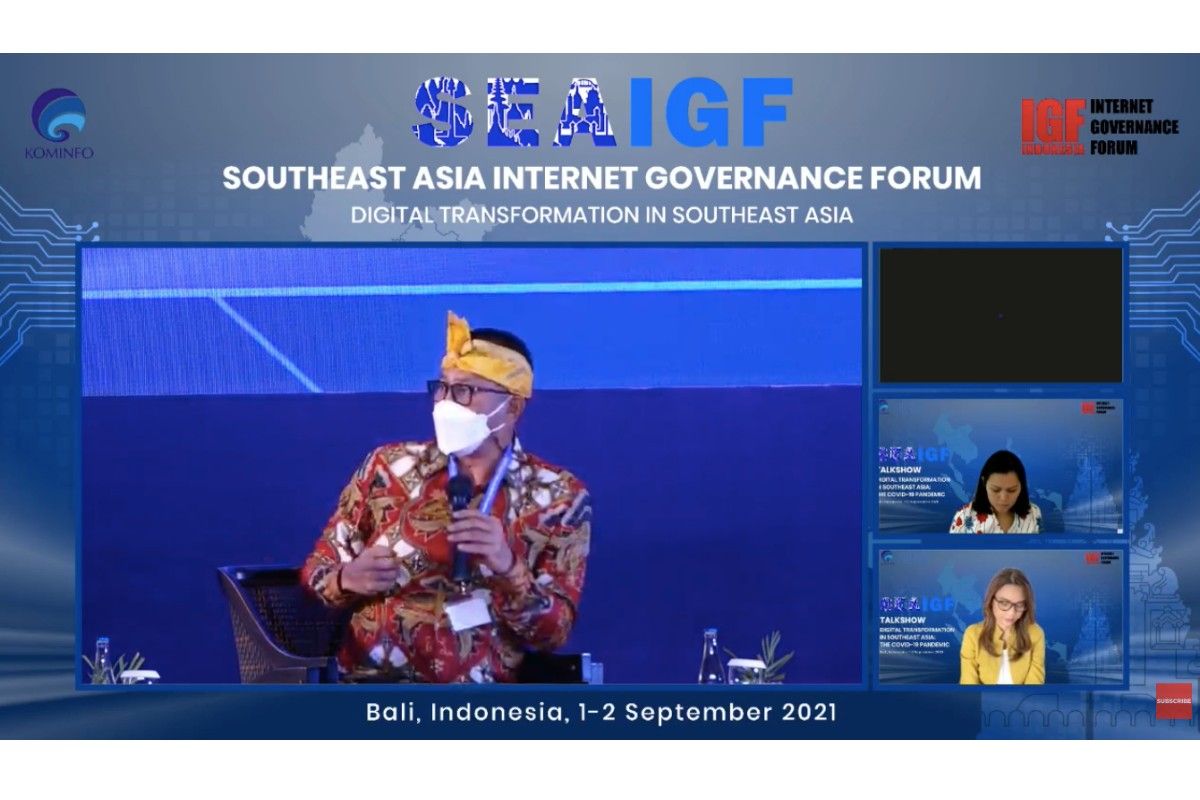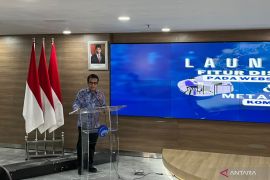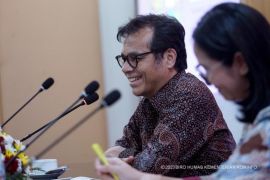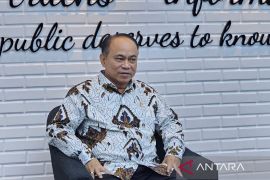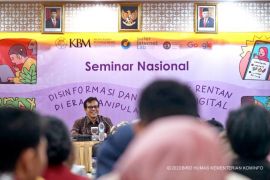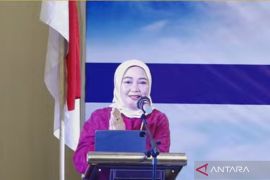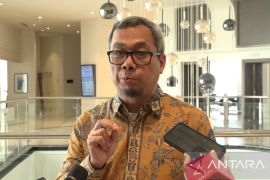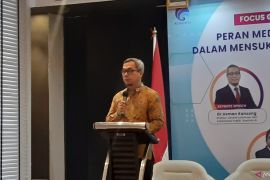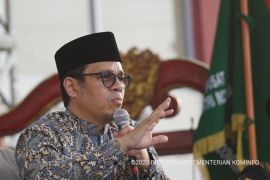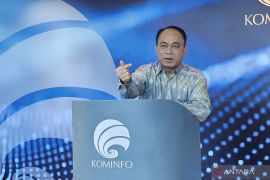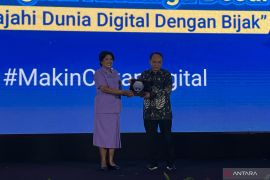"The basic key to digital transformation is human resource literacy," director general of informatics applications at Kominfo, Semuel Abrijani Pangerapan, said in a webinar on Wednesday.
The ability of human resources will affect how they use the digital space, he said. Therefore, the government is trying to foster digital literacy so that people can use the internet positively, he added.
Building of the public's understanding of the digital space is fundamental to the effort so that they are ready and can actively participate when technology advances later, Pangerapan said.
A few months ago, the government launched the National Digital Literacy Movement, which focuses on the themes of digital media culture, digital media safety, digital media ethics, and digital media skills, he noted.
The digital literacy movement is expected to train around 12.4 million people every year, he said. By 2024, it is targeted that 50 million people will have such training, he added
Related news: 2021 Indiskop Festival to feature digital literacy class
The digital space has been recognized in Indonesia since 2008 through the Electronic Information and Transaction Law, Pangerapan observed.
The development of digital infrastructure is no less critical in the digital transformation agenda, he opined. For this reason, the government is seeking to accelerate infrastructure development so that all regions in Indonesia can have internet access, he said.
The Indonesian Internet Service Providers Association (APJII) survey in 2020 showed that internet penetration in the country had only reached 73.7 percent of the population of around 196.7 million people, he added.
In fact, when it comes to digital transformation, according to the general director of the Telecommunication and Information Accessibility Agency (BAKTI) of the Kominfo, Anang Latif, the ideal number is 100 percent.
The government, through BAKTI, has also changed the funding scheme to build 4G base transceiver station (BTS) towers, which was, so far, only using universal service obligation (USO) funds from cellular operators. Starting this year and 2022, the scheme will also use the State Revenue and Expenditure Budget, Pangerapan said.
The government is also advancing the ICT infrastructure development agenda, which was initially scheduled to be completed in 2032, to 2022 due to the coronavirus pandemic, which has led to many activities being carried out remotely using the internet, he added.
Related news: Kominfo currently offers millions of open spots for digital training
Related news: Ministries seek to boost digital literacy among madrasa students
Translator: Natisha A, Raka Adji
Editor: Suharto
Copyright © ANTARA 2021
